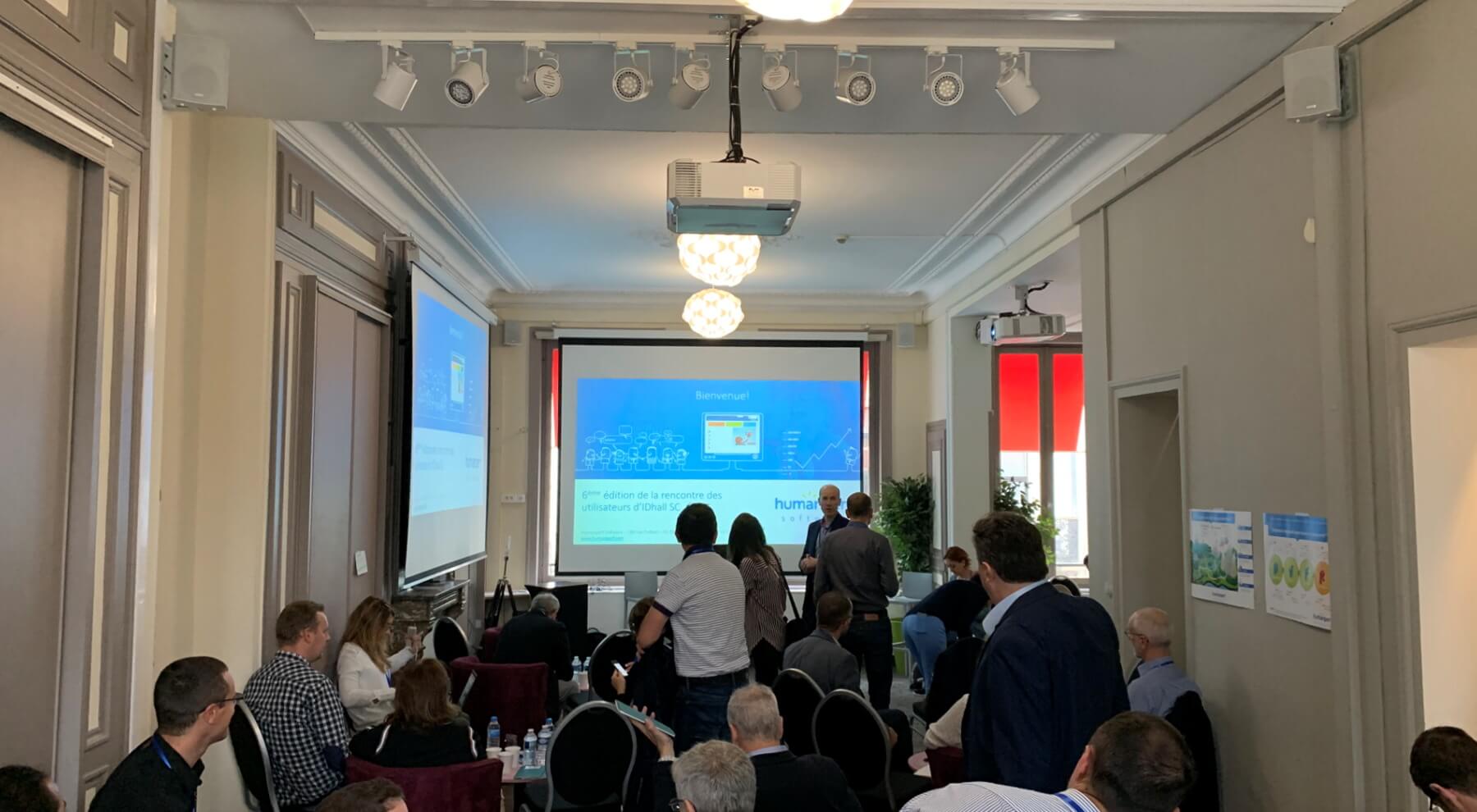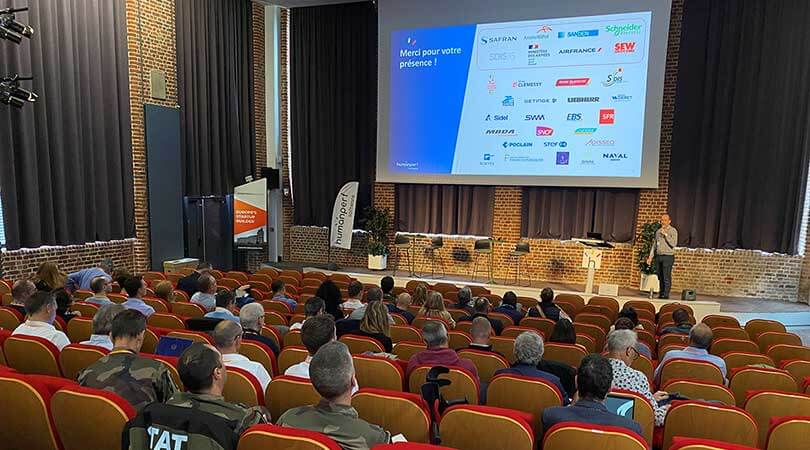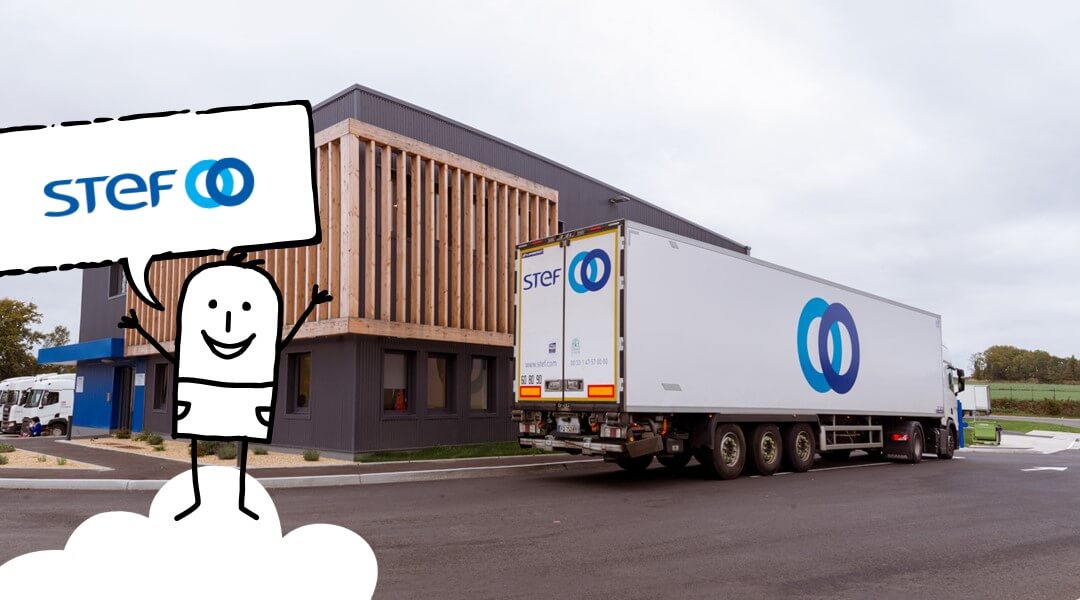This sixth IDhall user forum held on 20 June in Lille was a real success with more than 50 attendees, representing almost all business functions, including innovation, R&D, HR, manufacturing, operations, IT and so on.
The day therefore featured much sharing of best practice and feedback. While some contributions focused on collaborative innovation, others illustrated continuous improvement and action plan management processes, but all ultimately shared the same objective, which was to get their organisation moving to bring about transformation and improve competitiveness.
Shared concerns about ever-increasing numbers of transformation projects
Whether driven by digitalisation or business reorganisation (or both), transformation projects are increasing in number, and we saw various illustrations of this phenomenon over the course of the day, ranging from fairly limited change initiatives the benefits of which are quickly seen by employees, to more wide-ranging transformation projects affecting every process and all staff.
Under such circumstances, all organisations share some common concerns:
- How can progress be successfully made across the board when resources are limited?
- How can the innovation or continuous improvement process be promoted, viewed as it is as strategically important, but not mission-critical, in terms of day-to-day operational priorities?
- How can commitment from the various stakeholders be secured (from employees to middle and indeed senior management)? How can the process be “sold”?
- How can cultural change be driven in favour of the process? How can the entities with the most fertile conditions be identified?
- How can the plethora of processes and procedures in businesses be made to meaningfully co-exist (innovation, R&D, participative innovation, open innovation, digital transformation, continuous improvement, quality, the customer experience, etc.)?
To illustrate these transformation processes, we have selected three testimonials from the many talks given during the day, namely Blancheporte, Malakoff Médéric Humanis and UPSA.
Blancheporte: a 200-year old “re-startup” undergoing transformation
Blancheporte is a clothing and household goods brand present in France (including its overseas territories), Belgium and Eastern Europe. Established in 1806 and a trailblazer in distance selling, Blancheporte now generates revenue of €170m, half of which comes from online sales, with 2.3m customers who regularly place orders.
Use of IDhall’s collaborative platform is an integral part of the company’s wide-ranging transformation program, known as “Olympe”. This is not, however, Blancheporte’s first transformation. The 200-year old “re-startup” has already successfully undergone two major shifts, from a manufacturer to a distance seller, then from mail order to digital, becoming France’s sixth largest online clothes retailer in the process.
The Olympe program arose from a growing awareness that only innovation would enable us to find different routes to development and improved profitability. It combines seven strategy areas and disseminates the vision that all members of staff need to share over the long term, so that everyone can make a contribution and help make the company’s latest transformation a success.
Head of Human Resources
Ideas and collaborative innovation at Blancheporte
Renamed “B’Project” internally, IDhall was appointed early in 2018 to facilitate and organise the sharing of ideas by members of staff, and to make it possible for them to have an overview of all transformation projects in progress within the company. At the outset, many ideas were about in-house matters and quality of life in the workplace, but that made employee support easier to obtain, and subsequently employees offered more ideas focused on customers. A steering committee was set up to track ideas and divide initiatives between the company’s seven strategy areas.
With hindsight, we can see that the process is not self-sustaining. It needs to be constantly led, new employees need to join, and it should be guided towards meeting the requirements of the business. The quality of support and guidance given to employees, and internal publicity about the scheme, are vital to securing employee buy-in and motivation.
Head of Human Resources
Malakoff Médéric Humanis: operational excellence through Kaizen
Malakoff Médéric Humanis is a group health insurance and pension plan provider, organised as a non-profit mutual, formed on 1 January 2019 from the merger of Malakoff Médéric and Humanis. The group is one of the leaders in welfare provision for businesses and consumers. One sixth of the French population is covered by its health and incapacity plans, and a quarter by one of its complementary pension plans.
In 2014, Malakoff Médéric began an operational excellence program in its product management/subscription and document administration departments, where 20% of the processes accounted for 80% of the work. The main issue was to find greater operational efficiency, in particular through use of the Lean method and the establishment of some fundamental managerial principles.
After a few years, it was obvious that ideas submitted from grassroots could resolve many issues, and in particular issues surrounding quality of service and customer satisfaction. The group then decided to extend the continuous improvement process to other internal departments. This required a more organised approach to managing the ideas generated. An invitation to tender was therefore issued and IDhall appointed in 2018.
To nurture the continuous improvement mindset in a group with 12,000 employees spread across 200 sites in France, a reliable and scalable ideas collection and tracking system was crucial. IDhall met that requirement in full.
Project manager
The Kaizen mindset at Malakoff Médéric Humanis
To support the process and encourage employee buy-in, the continuous improvement unit adopted a “Kaizen” approach (Japanese for “change for the better”). The objective is for employees to understand how the unit’s mindset was focussed on improvement through small steps, gradually altering how things are done, and supporting all members of staff as this occurs.
At this point, 79% of the ideas submitted in IDhall are approved, and around 34% are actually implemented. Our target is to improve this conversion rate to 50% by adding a more accurate quantification of the gains achieved by the change initiatives successfully implemented.
Project manager
UPSA and the move to a participative innovation culture
The pharmaceutical laboratory UPSA, operating in France since 1935, has built up substantial expertise in effervescence, pain treatment, ENT conditions, energy levels, digestion and sleep quality. With more than 1,300 employees on production sites in Agen, UPSA is the leading private-sector employer in the French département of Lot et Garonne. It produces more than 300 million boxes of medicinal products per annum.
Quality of life in the workplace and participative innovative are core to UPSA’s culture and values. Starting from the premise that all ideas are good ideas, it needed to organise a way for all employees to be heard and their creativity given free rein.
To collect as many ideas as possible, whether unprompted (about working conditions, welfare, organisational issues, etc.) or prompted (by a project, problem resolution, etc.), transparency is important. At UPSA, ideas are displayed on all sites on innovation trees, and PC stations are freely available on production sites to give all staff access to the system. In the last four years, 80% of employees have submitted at least one idea, and 45% of ideas concerned performance and innovation within the company.
Project assistant
UPSA: 2019 gold award for participative innovation
The successful implementation of participative innovation linked to group values (passion, innovation, agility and responsibility) was also recognised by the non-profit organisation Innov’Acteurs which gave UPSA a gold award for participative innovation. Thanks to strong commitment from senior management and the formation of a network of 20 ambassadors, supporting and guiding the proponents of ideas, UPSA managed to secure the commitment of 1,300 site employees and to enable each of them to contribute to building innovative solutions working towards achieving the group’s strategy objectives.
Submitting an idea is great, but converting it into practical measures is even better. The starting point to achieve this is governance. All concerned must know exactly what they have to do. All documents relating to the participative innovation policy and process are included within the IDhall solution, now renamed Idée Nov’.
Project assistant
Download our comprehensive guide to setting up an effective innovation culture in your own business:





